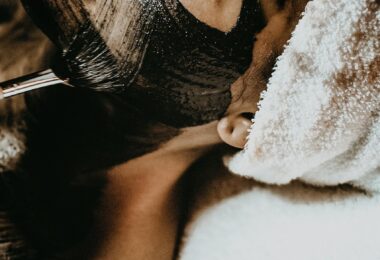Eczema is a pesky skin condition that affects around 1 in 5 children and whilst there is no definitive cure, it can certainly be tamed.
Eczema can seem like the end of the world when it first appears – usually before a child reaches two – but most children will grow out of it by the time they hit their teenage years. Technically incurable, it can still be controlled with the right treatments and become a much more bearable ailment in the process.
Symptoms and Genes
Also known as Atopic eczema, the visible effects are typically dry and itchy red skin, which can also start to ooze and bleed if scratched. Babies are normally affected around most of their body due to their skin barrier not being as strong as it should be, which makes their skin drier and more prone to infections and allergens. However, there’s no reason to throw in the towel just yet as there are a number of effective methods for treating Eczema in children.
The real issue with Eczema is that doctors still aren’t precisely sure what causes the condition, although genetics have been a recent focus of studies. This means it could be an inherited issue, as lots of children with Eczema also tend to develop allergies, Hay fever and Asthma. Whilst your baby may already have dry or itchy patches of skin – which is pretty standard for a newborn – flare-ups can occur which become inflamed and worsen the skin’s condition.
Flare-ups are generally a result of skin irritation caused by chemicals, which can be found in products including the detergents in bubble baths, fabric softeners, washing powders and shampoos. If this is the case, it’s advised to use bath emollient instead of soaps and detergents to greatly reduce the risk of an outbreak.
Another preventative method could be to change your washing detergent to non-biological, which can be very helpful in the fight against Eczema. As with most skin conditions, scratching the irritated areas will only make things worse. However, this can be a quite a distressing time for a baby who will want to scratch as much as possible. Lots of parents have had success covering their baby’s hands with mitts (or socks) and keeping their nails cut short to prevent the scratching breaking the skin. Depending on the gravity of the case, it can also affect their sleep and as they get older, their confidence. When looking to prevent flare-ups, moisturising your baby’s skin is an essential step to take!
The treatments
There are many efficient ways of treating Eczema, but which method to choose often comes down to how serious it is. In most cases, the condition is mild with a few red and itchy areas. Treating these with emollient lotion, cream, ointment or bath additives usually does the trick. Because of the vast range of products available, it may simply be a case of try and fail until you find the most effective treatment for your situation.
Children should also apply emollient products liberally, even if there is no evident sign of irritation. It will help the skin from drying up too much and lessen the impact of any future outbreaks. When you have found the one which works best for your child, your doctor will most likely prescribe it repeatedly – these products need to be applied on a regular basis for them to properly work. However, you may want to avoid aqueous cream, as recent studies have linked it to causing further irritation.
Another common form of treatment for babies is the use of steroid cream or ointment, which have been proven to be effective in the fight. Your doctor will recommend this alongside an emollient from time to time. They are safe if used correctly, but always check with a medical professional for guidance before use and stick to their guidelines.
There are also other treatments available such as oral antihistamines, which can be prescribed if your little one’s eczema is especially itchy and disrupting their sleep, but these are not used as routinely as emollients. Often the antihistamines prescribed for children can cause drowsiness, so they’re best used at night before heading to bed. Again, you will need to speak to your doctor before taking this route. If they decide the case is severe, they may refer you to a specialist dermatologist for further help and advice.
Eczema is an irritating condition because – despite not being particularly dangerous – it can often be difficult to live with, particularly for a child! Scratching is the immediate response for most people when their skin is irritated, despite knowing it will do more harm than good. Children will instinctively keep scratching until the itchiness fades, causing a cycle of frustration as the condition continues to result in pain and irritation.
Luckily, treatments against Eczema are becoming increasingly common and much more effective. From emollient products to steroid creams and even oral antihistamines, the fight to beat Eczema – and put your child’s mind at ease – isn’t a lost cause.


![[Image - John French]](https://www.fqmagazine.co.uk/wp-content/uploads/2014/11/3bfa5a7e41ccb228078a88e28d2b13ec.jpg)





